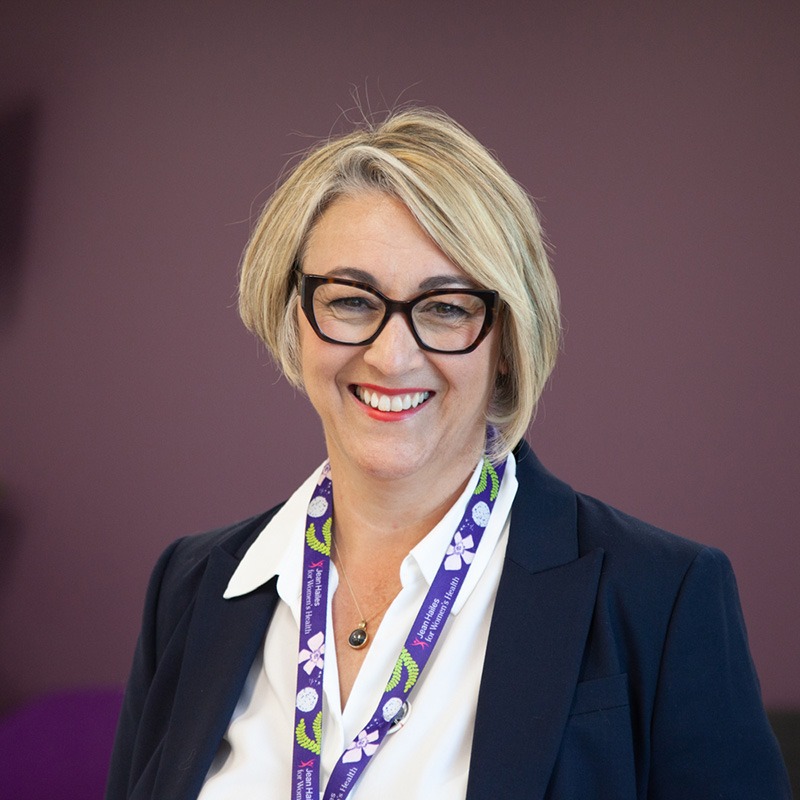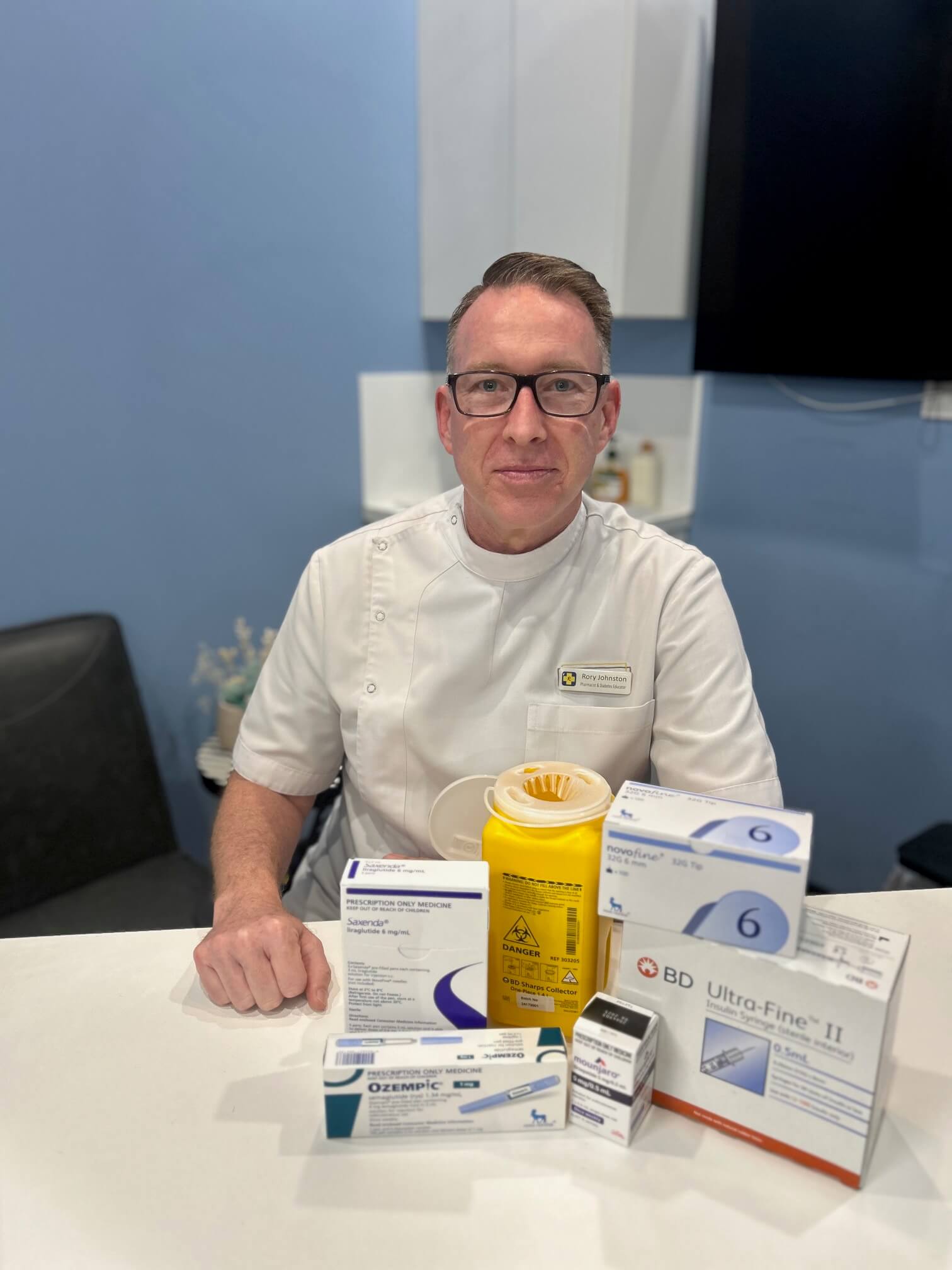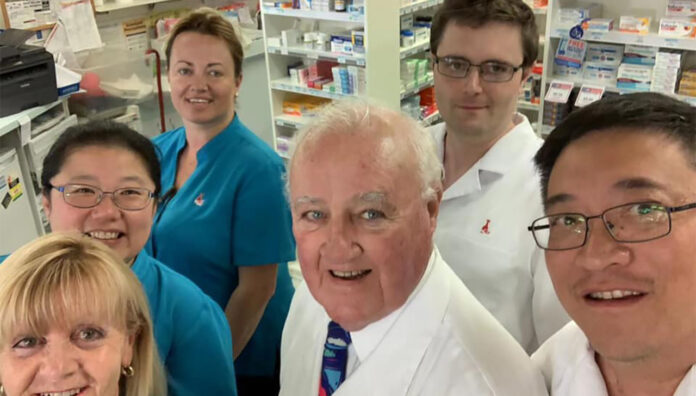Kerry Schiemer MPS has been a proud pharmacist for more than 60 years. Set to retire next month, he reflects on the best parts of pharmacy practice and why patient-centred care is so important.
Pharmacy wasn’t the first career choice for the New South Wales-based pharmacist.
Instead, he wanted to be a pilot, but finding out he was red-green colour blind in Year 10 put paid to that dream.
After graduating from Sydney’s St Joseph’s College in the mid-1950s, Mr Schiemer planned to work on the family farm in the north-western NSW town of Coolah.
But the headmaster at St Joseph’s advised him to consider another option.
‘He said, “Kerry, you’d be a good chemist … I’ll put your name down for an apprenticeship”,’ Mr Schiemer told Australian Pharmacist.
Unconvinced and disappointed that his flying career was not to be, Mr Schiemer worked on the farm for a year until 1957, when he received a call about an apprenticeship on offer at a pharmacy in the Newcastle suburb of Wallsend.
‘I didn’t know what I was doing or where I was going, I just went and had the interview,’ Mr Schiemer said.
‘But 3 days after I started, I knew I was to be a pharmacist. Wasn’t I lucky?’
The importance of mentors
In the early stages of his career, Mr Schiemer was fortunate enough to work for some very influential pharmacists.
‘I was apprenticed to Jim Matthews, who became the National President of the Pharmacy Guild of Australia, while I was studying part-time at Sydney University,’ he said.
‘And as an intern in Harbord [in Sydney’s northern beaches] my apprenticeship was transferred to John McDonagh. Alan Fraser, who was PSA’s state secretary, was a locum there at the time.’
It was from these mentors that Mr Schiemer learnt the importance of personalised care.
‘I never wanted to work in a big pharmacy. I wanted to run a small, one-man business where I could personally assist people,’ he said.
‘I learned a lot about that from these men, and I wanted to be like them.’
‘I never wanted to work in a big pharmacy. I wanted to run a small, one-man business where I could personally assist people.’
In 1965, at the age of 27, Mr Schiemer had his first foray into pharmacy ownership in Whitebridge, Newcastle.
‘With my dad’s help, I bought a cottage and built a little pharmacy at the front with a doctor’s surgery on the side. We also lived on the premises,’ he said.
About 8 years later, Mr Schiemer sold the Whitebridge establishment and bought a pharmacy 10 kilometres away in the beachside suburb of Redhead, where he firmly established himself as an integral part of the community.
‘I think I was probably practicing forward pharmacy because as soon as a patient had any illness that needed attention, the staff came and got me and I went out and helped them,’ he said.
Establishing services
After purchasing Shoal Bay Pharmacy in 1992, Mr Schiemer introduced medicine reviews to the entire Tomaree Peninsula (221 kilometres north of Sydney).
‘In 1997, I was the first pharmacist in the area to gain the qualifications, and I very gently introduced GPs to the benefits of medicine reviews,’ he said. ‘Now it’s just routine.’
Mr Schiemer conducted medicine reviews at a local nursing home and a low-care facility, and the service had a significant impact on the community’s health.
‘When patients were on anti-inflammatories, for example, we’d try reducing the dose or trial Panadol Osteo when that came out,’ he said.
‘In the end, we managed to get a lot of people off anti-inflammatories.’
Benefits of ‘old-fashioned’ pharmacy
When compounding medicines was the norm, the formulations Mr Schiemer concocted were targeted to address the community’s health issues.
‘When I was an apprentice in Newcastle, for example, it was a coal mining area, and a large percentage of the miners had dreadful chests because of the vapours and carbon floating around,’ he said.
‘Experience is still the greatest of all teachers, I’m quite sure of that.’
‘We used to make a medicine called Fagan’s Compound, which had creosote in it. It was a wonderful expectorant cough medicine.’
After consulting desks became a part of pharmacy practice more than 25 years ago, Mr Schiemer’s Shoal Bay pharmacy was one of the first in the region to install one.
‘I had a computer screen with a beautiful set of [anatomy] pictures, so I could pull up a visual of what we were treating and explain to the patient how their medicine was going to work,’ he said.
‘Afterwards, they would say, “Kerry, how much is it for the consultation?” But we never charged for our services as pharmacists.’
Back then, Mr Schiemer said, pharmacists promoted themselves as ‘family chemists’ – an integral first port of call for any healthcare needs.
‘When my patients would get sick, the first thing they’d think was “I’m crook, I’ll go see Kerry”. That’s why I didn’t need to advertise,’ he said.
‘Depending on what it was, I’d either send them off to the doctor, or see if I could treat them myself, and I’d tell them to call in a couple of days later to let me know how they were going.’
One of the aspects of pharmacy practice Mr Schiemer enjoyed most was early childhood care, which used to be commonplace.
‘Mums would bring their babies in when they were a few weeks old, and from then on until they were toddlers, I would weigh them, check their ears with an otoscope, and inspect the rest of the body if there was anything wrong,’ he said.
‘If they had a rash, I’d take a look at it and dispense medicines to try and fix it, and if that didn’t work I’d refer them to the doctor.’
He recalls first offering these services as an apprentice pharmacist, which he learnt how to do on the job.
‘We had absolutely no medical training and our academic education was very basic, but our experience was marvellous,’ he said.
‘Experience is still the greatest of all teachers, I’m quite sure of that.’
When it comes to offering advice to the next generation of pharmacists, Mr Schiemer’s message is simple.
‘Your patient comes first. We help sick people get well and healthy people stay healthy,’ he said.
‘That’s our challenge in life and it is very satisfying.’



 Source: Queensland Health Immunisation Program[/caption]
Source: Queensland Health Immunisation Program[/caption]


 Dr Sarah White[/caption]
Dr Sarah White[/caption]


 Rory Johnston MPS[/caption]
There is often a perception that people are simply overweight due to overeating, said Mr Johnston, but there are myriad conditions and medicine classes that can cause patients to gain weight, including:
Rory Johnston MPS[/caption]
There is often a perception that people are simply overweight due to overeating, said Mr Johnston, but there are myriad conditions and medicine classes that can cause patients to gain weight, including:





